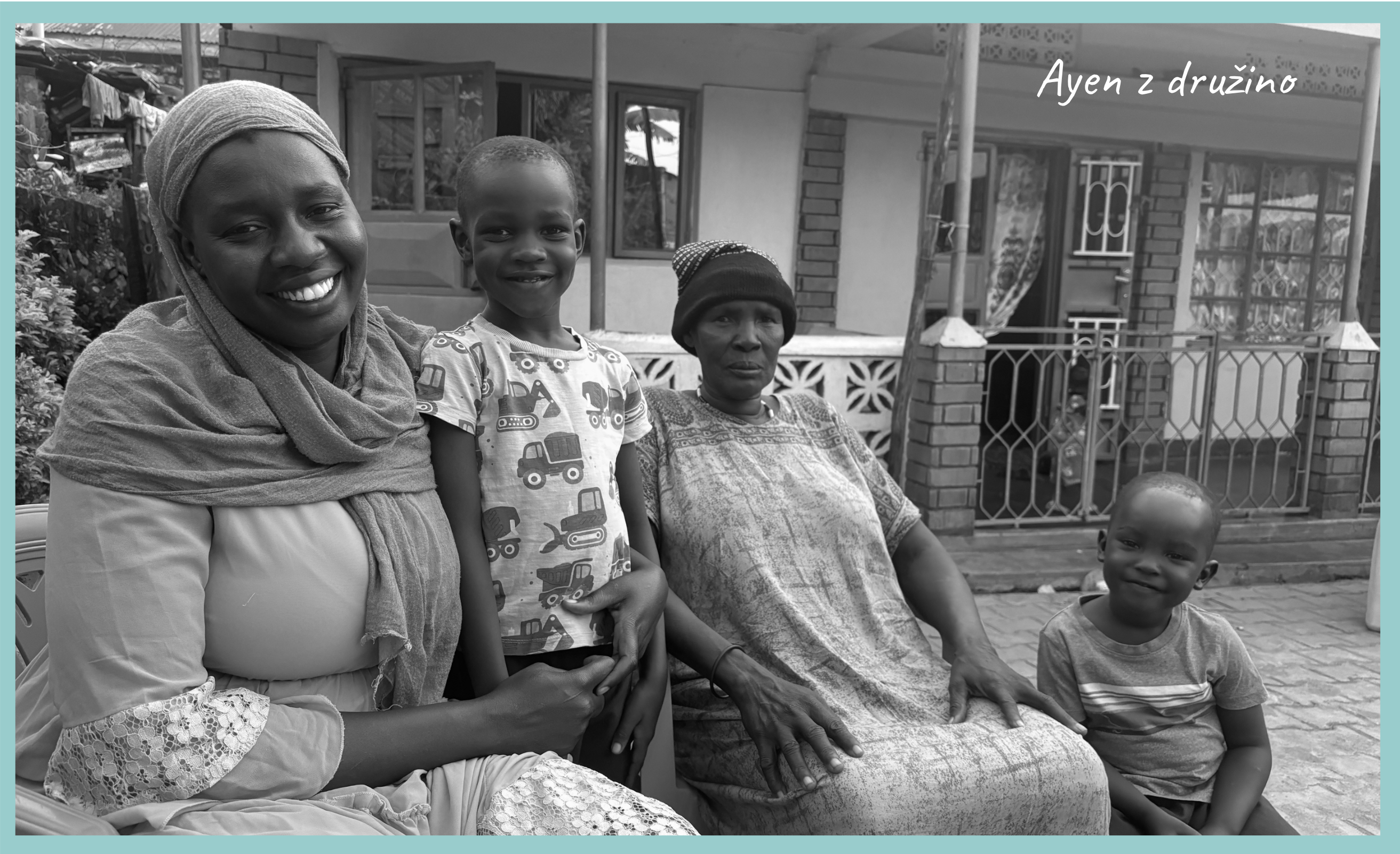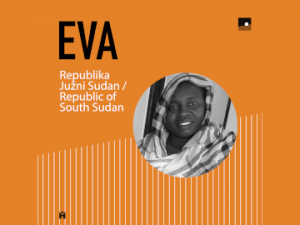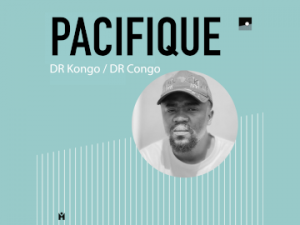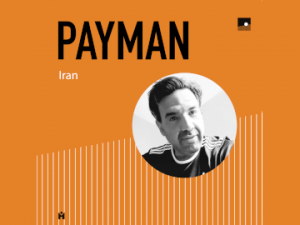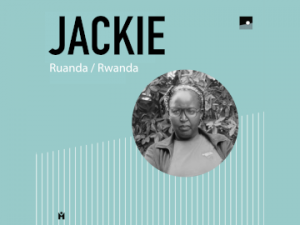Living Peace 9: Letters of Wars and Peace
20. 2. 2025 | Politics
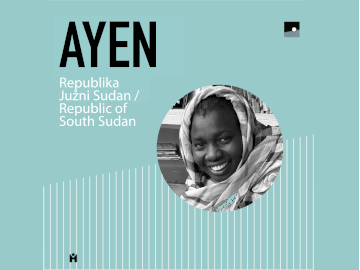
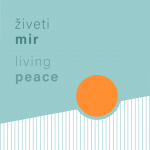 At the end of 2022, we at the Peace Institute, started organizing a series of public events entitled Thinking Peace as a response to the multitude of armed conflicts around the world. Since the world has been spiralling into dangerous global militarization, we wanted to rethink what is war, what is peace, and more importantly how to ensure a stable peace which would not be quickly engulfed in new conflicts and wars.
At the end of 2022, we at the Peace Institute, started organizing a series of public events entitled Thinking Peace as a response to the multitude of armed conflicts around the world. Since the world has been spiralling into dangerous global militarization, we wanted to rethink what is war, what is peace, and more importantly how to ensure a stable peace which would not be quickly engulfed in new conflicts and wars.
We want to expand on the Thinking Peace cycle and add new dimensions to imagining peace. With the help of amazing individuals worldwide, we are beginning a new series of public letters written by people whose lives were interrupted by war or who found themselves in a recent armed conflict. We have titled this series of letters as Living Peace to emphasize how important peace is and that people often only realize this importance when facing the brutality of war. We want to illustrate how people from Palestine, Ukraine, Rwanda, Bosnia and Herzegovina, Croatia, Serbia, Syria, Sudan, Afghanistan, Congo, Yemen and elsewhere think publicly about peace. How do the inhabitants of these regions face wars and military conflicts? What lessons can we learn from their intimate experiences and existential fears?
While opinions of world leaders who justify or even defend wars, dominate today’s media spheres, we want to amplify the voices that defend peace, reject violence and recognize equal rights for all. Having experienced war, they understand why it is essential to live in peace.
The 9th letter we are publishing was written by Ayen from Republic of South Sudan:
Here comes my darkest moment – it was when I felt a merciless hand of a soldier grabbing my hand and pushing me down. Together with other soldiers they were also beating me and asking so many questions about those who were fighting with them. They took me to their camp and the commander in charge ordered them to arrest me. In prison I was threatened to be killed if I didn’t give them information they needed. It was then that my childhood ended. Everything in my beautiful life turned into darkness. I was beaten and denied water, food and shelter. I was hungry, exhausted and all my clothes were torn. They started teasing me and slapping my small buttocks. The following day they found out I was innocent and couldn’t answer their questions since I was too young; their commander told them to release me.
While going home, my mind was filled with so many questions and fear of other soldiers that would come and take me again, asking myself why they had treated me like that. Upon reaching my village there were no people except dead bodies that became wild birds’ food. I sat under the tree thinking where to go. I was tired, hungry and with a lot of injures that have caused scars on my body until today. I lay down and fell asleep immediately that evening. Our neighbours brought some food. I ran to them. They were surprised to see me and helped me find my auntie again.
LETTER BY AYEN FROM SOUTH SUDAN
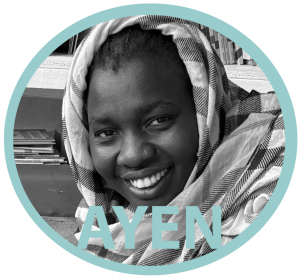 The two unforgettable wars I experienced in my life.
The two unforgettable wars I experienced in my life.
My name is Ayen Ngor Malek, I was born on 15th of August 1988 in SOUTH SUDAN.
I am going to talk about the wars I have experienced.
The war started before I was even born, my family used to flee from one place to another, looking for a peaceful place to settle down and that made me grow up as an internally displaced person in my own country. As the war continued, I saw a lot of people dying from different kind of diseases and hunger.
There were no hospitals and shelters, food was not easy to get, young children were mostly affected by a lot of suffering, but in 1995 our situation became unbearable. Coping with famine became too difficult – we were without food for four days and all we could get was wild fruit in the forest and polluted water to survive for another four months. To make the situation worse my mother was pregnant with my younger sister, but the conditions were still the same – there was no food, so my father decided to go look for it. I remember his words were to wait for his return, but unfortunately, he never came back. My mom died after the delivery due to hunger. That was the darkest period of my life, because we became orphans. We started living with our aunt but had to face a lot of mistreatments, so life became harder. I remember crying every day as the war continued and we had to grow up without schooling, with poor diet and hygiene. I was separated from my siblings, and everyone went their own way. Since I was among the youngest ones, I remained with my auntie in a small village. On 15 January in 1998 I was 10 years old. The army arrived in our village, and they shot everyone they saw. I was playing near our hut and within a minute people started running in different directions. I was confused and did not know which way to take, trying to hide under the trees near our home as people were running for their safety. Some parents forgot their children and I was among the children who remained in the village.
Here comes my darkest moment – it was when I felt a merciless hand of a soldier grabbing my hand and pushing me down. Together with other soldiers they were also beating me and asking so many questions about those who were fighting with them. They took me to their camp and the commander in charge ordered them to arrest me. In prison I was threatened to be killed if I didn’t give them information they needed. It was then that my childhood ended. Everything in my beautiful life turned into darkness. I was beaten and denied water, food and shelter. I was hungry, exhausted and all my clothes were torn. They started teasing me and slapping my small buttocks. The following day they found out I was innocent and couldn’t answer their questions since I was too young; their commander told them to release me.
While going home, my mind was filled with so many questions and fear of other soldiers that would come and take me again, asking myself why they had treated me like that. Upon reaching my village there were no people except dead bodies that became wild birds’ food. I sat under the tree thinking where to go. I was tired, hungry and with a lot of injures that have caused scars on my body until today. I lay down and fell asleep immediately that evening. Our neighbours brought some food. I ran to them. They were surprised to see me and helped me find my auntie again.
The war became very serious in 2003. I decided to leave with the people who went to North Sudan, Khartoum. When I reached the city, there was no one familiar there and the city was very big. I could see many different people, but no relatives, no friends, so I went to the nearby Catholic church and stayed there all day. In the morning the nuns gave me clothes, water and food. I was very grateful. I told them I was an orphan, so they allowed me to stay with them in their orphanage.
On 10 th May 2005 a group of JIHADS burnt our church and our priest was killed. We took the train to Egypt. I met a kindhearted South Sudanese family who let me stay with them. They helped me to start attending the adults’ school, which made me extremely happy. For the first time in my life my dream was being fulfilled – I had the opportunity to study like other children.
In 2007 life became hard again, so we decided to cross the border to Israel. It was an illegal journey, and many people died on the way. But with God’s mercy I reached the destination alive. The Israelis welcomed us with open arms and gave us jobs. Those six years spent in Israel were the best years in my life.
In June 2012, I was deported to South Sudan together with my husband and children. We were actually happy to live in our country and were planning to live as normal parents, my husband even worked as a shopkeeper in Juba.
Unfortunately, in 2013 the war started again. My husband was at his workplace while me and my children fled towards the Ugandan border. There were no buses, so we had to walk. There were a lot of dead bodies everywhere. It took us two days to reach Uganda. We were tired and hungry. On our way we found parents separated from children, people who had lost their loved ones crying bitterly. I will never forget how my children kept asking questions about their father, and how I have failed to answer them until today – because I lost him in that war.
I have been living with my children in Uganda since then. I have found peace here and this is actually what I have always wished for. I really hope permanent peace is something we will not be deprived of again.
